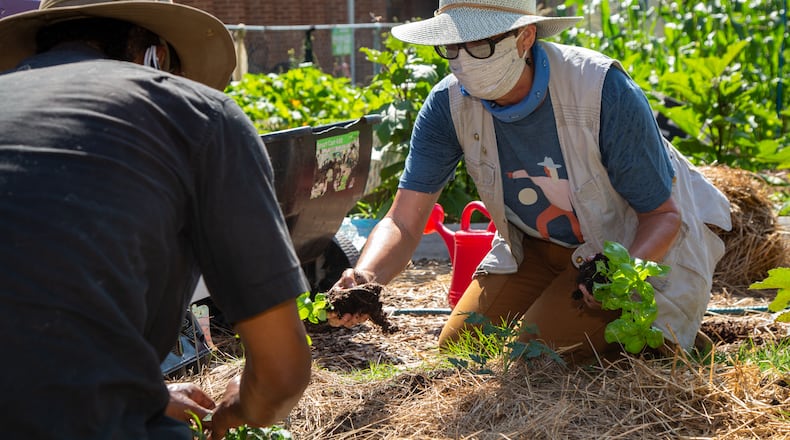The James M. Cox Foundation on Monday announced a $2.1 million donation to an a nonprofit that supports community gardens and urban farms in the Atlanta metro area.
That nonprofit, the Food Well Alliance, has supported growers at 195 gardens and farms in Clayton, Cobb, DeKalb, Fulton, and Gwinnett counties. The nonprofit was started in 2015 by James M. Cox Foundation Chairman Jim Kennedy and Atlanta Community Food Bank Founder Bill Bolling. Since then, the nonprofit has raised $21.3 million, $16.7 million of which has come from the Cox Foundation.
“Food Well Alliance is connecting growers, gardeners and farmers who provide locally grown food to the people in their communities,” Kennedy said in a statement. “We are proud to support their efforts.”
The Cox Foundation is one of the philanthropic entities of Cox Enterprises, which owns The Atlanta Journal-Constitution.
The interest in urban agriculture has only increased during the pandemic, according to the Food Well Alliance. Locally grown food is one way to offset rising food costs. Since 2015, Food Well Alliance has helped 150 community gardens, 45 urban farms and 50 local food organizations. An urban farm is typically only a few acres of land, used to grow crops to sell, Bolling said.
Bolling said that Kennedy first brought the idea of growing the local food movement as a way to help people and build community.
“That really spoke to me,” Bolling said, “and that’s exactly what we’ve done over the years.”
Through the program, gardeners have also donated over 500,000 pounds of produce to area food pantries. Hunger is still very much a problem in the greater Atlanta region. The demand is nowhere near as high as it was during the height of the pandemic, but leaders of nonprofit food banks say the food lines now are far exceeding pre-pandemic levels.
Bolling said they’ve found that community gardens and farmers markets are strengthening people’s bonds with their neighbors, while also teaching children about where their food comes from.
“Food is a great engagement tool. It’s a great way to know your neighbor, to share things that you love, and to learn from each other,” he said.
About the Author
Keep Reading
The Latest
Featured


